Sensor Sweep: Crusher Joe, Diana Rigg, Black Ops Cold War, Ambrose Bierce
Monday , 14, September 2020 Sensor Sweep 1 CommentForthcoming (Cirsova): We’ve just received Schuyler Hernstrom’s foreword for Endless Summer, and we thought it was too good not to share: Discussing stories is a complicated business. Buried somewhere underneath layers of criticism, commerce, and identity you might find some deep understanding of Misha’s work. But I worry that careless digging will disturb the landscape. I challenge myself to think about his work with the care and sensitivity that he puts into it.
Memorial (The Silver Key): Word spread on Facebook last night that Charles Saunders, author of Imaro, has passed away. It is being reported he died in May. Odd that an obituary search turns up empty. Let’s hope it may be a rumor, but it does not appear that way. Author Milton Davis, who continued in Saunders’ “Sword-and-Soul” tradition, broke the news, and many authors, friends, and peers have chimed in since.
Cinema (Wert Zone): Born in Doncaster, South Yorkshire in 1938, Rigg was  raised by her parents in Bikaner, India. Returning to the UK, she trained as an actress and made her stage debut in 1957 and her TV debut two years later. In 1965 she was cast in the first of her three major screen roles on the fourth season of British spy series The Avengers, playing Emma Peel. Peel was an action heroine with a line in witticisms, engaged in a constant battle of comebacks and ambiguous tension with her co-star Patrick Macnee (playing John Steed).
raised by her parents in Bikaner, India. Returning to the UK, she trained as an actress and made her stage debut in 1957 and her TV debut two years later. In 1965 she was cast in the first of her three major screen roles on the fourth season of British spy series The Avengers, playing Emma Peel. Peel was an action heroine with a line in witticisms, engaged in a constant battle of comebacks and ambiguous tension with her co-star Patrick Macnee (playing John Steed).
Cinema (Wasteland & Sky): The 1970s are still looked on by movie snobs as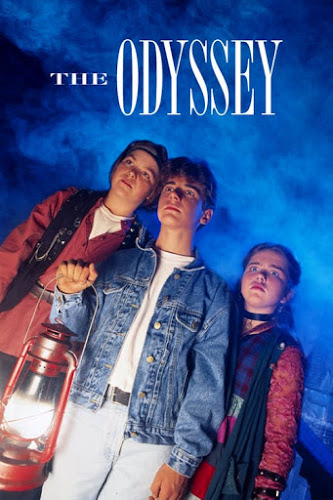 the peak of cinema, destroyed by the aforementioned filthy space movie that opened the theaters of the 1980s to juvenile pap. This is of course ignoring that the 1970s were dead, spiritually, and morally, which makes many of those 1970s “classics” more worthless than the juvenile goofy space movie. It actually has a moral point, regardless of what you think of it. 1970s cinema, as a whole, did not.
the peak of cinema, destroyed by the aforementioned filthy space movie that opened the theaters of the 1980s to juvenile pap. This is of course ignoring that the 1970s were dead, spiritually, and morally, which makes many of those 1970s “classics” more worthless than the juvenile goofy space movie. It actually has a moral point, regardless of what you think of it. 1970s cinema, as a whole, did not.
Games (Bleeding Fool): The new game Black Ops Cold War takes place 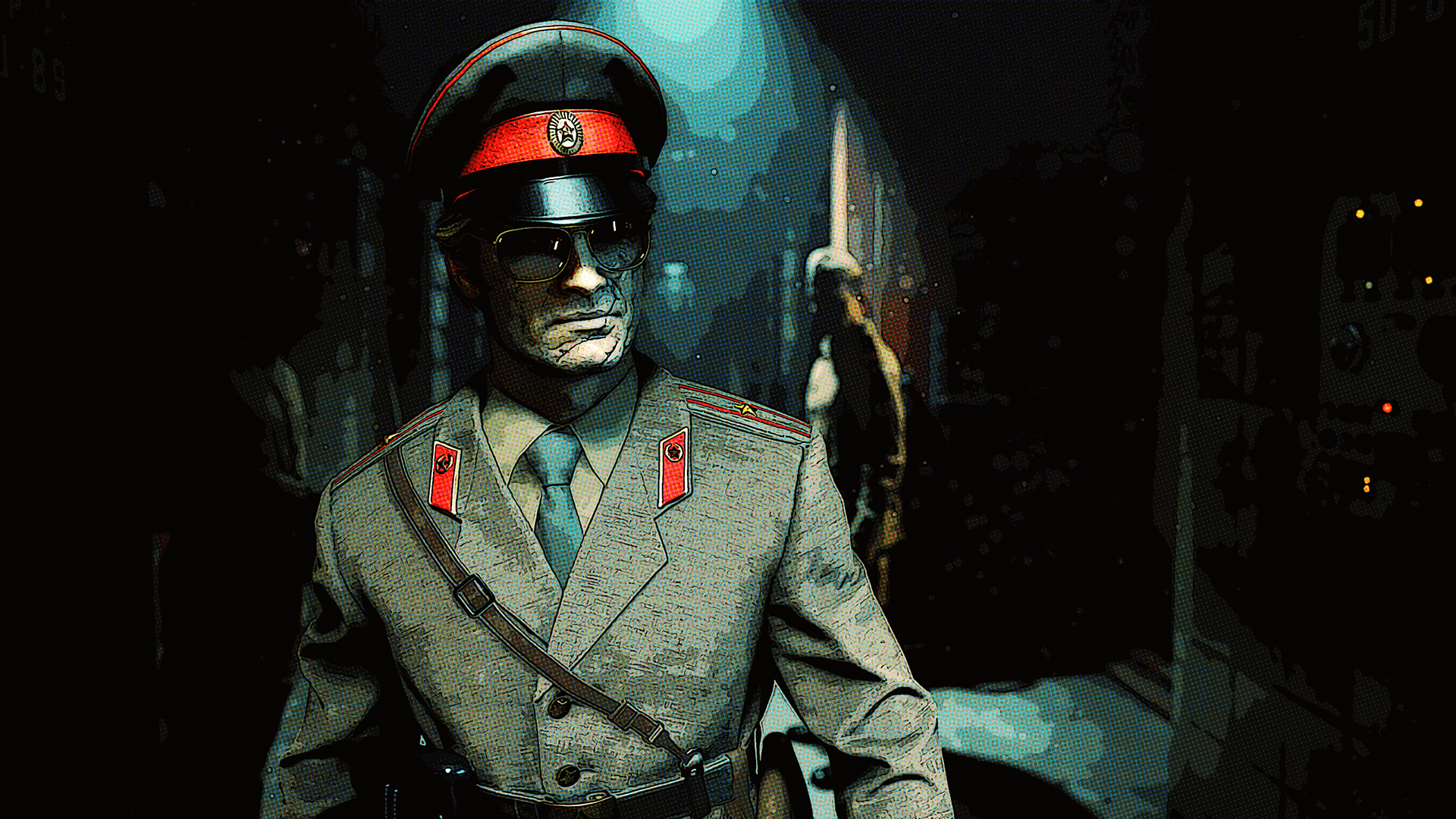 during Reagan’s presidency during the height of the cold war with communist Russia. The initial trailer features KGB defector Yuri Bezmenov speaking about the communist’s plan to bring down America from within. If you pay attention, you may recognize some of the moves being used by the left today. The trailer urges you to “know your history or be doomed to repeat it” as it flashes images from the cold war across the screen.
during Reagan’s presidency during the height of the cold war with communist Russia. The initial trailer features KGB defector Yuri Bezmenov speaking about the communist’s plan to bring down America from within. If you pay attention, you may recognize some of the moves being used by the left today. The trailer urges you to “know your history or be doomed to repeat it” as it flashes images from the cold war across the screen.
History (DMR Books): This past Friday marked the four hundred and fifty-fifth anniversary of the definitive end to the Great Siege of Malta. On  September 11, 1565, the tattered and battered fleet of Suleiman the Magnificent sailed away from the tiny island of Malta, utterly humiliated. The Ottoman Turks had disembarked amid imperial splendor nearly four months earlier. Their soldiers were reckoned in the tens of thousands, outnumbering by a factor of four to one–at minimum–the Knights Hospitaller and the Maltese who fought alongside them.
September 11, 1565, the tattered and battered fleet of Suleiman the Magnificent sailed away from the tiny island of Malta, utterly humiliated. The Ottoman Turks had disembarked amid imperial splendor nearly four months earlier. Their soldiers were reckoned in the tens of thousands, outnumbering by a factor of four to one–at minimum–the Knights Hospitaller and the Maltese who fought alongside them.
Fiction (Galactic Journey): The book is titled The Wizard of Lemuria but we don’t meet the wizard until Chapter 4. There are 12 chapters. The first quarter of the novella-length book is spent introducing our hero, Thongor of Valkarth. He is, although a lowly barbarian mercenary, both mighty and honorable. The book opens on the aftermath of a wager on a zamph race. Jeled Malkh—an officer and swordmaster—lost the wager, and attacked Thongor rather than pay up. Thongor quickly overcame him, shrugged off the bet, and offered to drink away their differences.
War Gaming (Jon Mollison): Miniature wargames in general, and historical wargaming in particular, are headed down the same road as every other hobby out there. You’d think those with an interest in history would be better prepared to learn from the history of other hobbies, but it doesn’t look that way. A lot of ink is being spilled and chit is being chattered about how to save the hobby from… well, from something that can’t really be shown or identified.
Comic Books (Screen Rant): Heads are gonna roll – as well as fly, disintegrate, and cave in upon themselves, along with pretty much any other violent act that can be inflicted upon a head – in the latest adaptation of Robert E. Howard’s Conan the Barbarian. Originally published in Weird Tales and later adapted by Dark Horse Comics, the story of the legendary Destroyer is now published by Ablaze, a publication that has given Conan a sword more caked with blood than ever before thanks in part to their decision to create a truly uncensored version of his exploits.
D&D (Grognardia): I’ve never been much of a fan of Deities & Demigods, though I owned it, of course. Why wouldn’t I? I have always had decidedly completionist tendencies and being an unabashed TSR fanboy, there was no chance I wouldn’t purchase this book as soon as I was able to do so. It’s true I didn’t get much use out of it, but I still proudly displayed it on my bookshelf, right next to the Monster Manual.
Guns (Frontier Partisans): As will most when forced to fight for their way of life, the Apaches of The War Chief utilized any weapon to which they might lay hand. Some of these they fabricated, with especially skilled artisans becoming highly revered by the tribe. The Apaches ranged a broad swathe of the American West and portions of Mexico, and so various materials fell into their hands — materials they converted into bows, arrows, and war clubs, including the famous jawbone club. These weapons and tools, for centuries, they fabricated themselves from indigenous materials.
life, the Apaches of The War Chief utilized any weapon to which they might lay hand. Some of these they fabricated, with especially skilled artisans becoming highly revered by the tribe. The Apaches ranged a broad swathe of the American West and portions of Mexico, and so various materials fell into their hands — materials they converted into bows, arrows, and war clubs, including the famous jawbone club. These weapons and tools, for centuries, they fabricated themselves from indigenous materials.
Edgar Rice Burroughs (Pulpfest): The 2020 Edgar Rice Burroughs Chain of 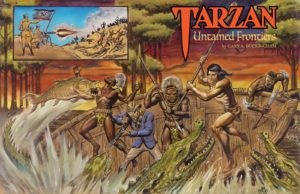 Friendship (ECOF) Gathering will be held Sunday, October 11 through Tuesday, October 13 in Fort Atkinson, Wisconsin. Guest of Honor is acclaimed comic book artist and Hollywood illustrator Daniel Parsons. COVID-19 restrictions dictate this will be a small gathering in two large meeting rooms at the Country Inn & Suites located at 1650 Doris Drive. Fort Atkinson is located just 35 miles from Madison or 65 miles from Milwaukee. It’s 100 miles from Chicago O’Hare International Airport.
Friendship (ECOF) Gathering will be held Sunday, October 11 through Tuesday, October 13 in Fort Atkinson, Wisconsin. Guest of Honor is acclaimed comic book artist and Hollywood illustrator Daniel Parsons. COVID-19 restrictions dictate this will be a small gathering in two large meeting rooms at the Country Inn & Suites located at 1650 Doris Drive. Fort Atkinson is located just 35 miles from Madison or 65 miles from Milwaukee. It’s 100 miles from Chicago O’Hare International Airport.
Fiction (Old Style Tales): “Some Haunted Houses” is easily one of Bierce’s most entertaining series of tales. I recommend it as the ideal Hallowe’en reading choice – a collection of pithy short stories that exude the gloomy atmosphere and chilling mood that make stories like Jacobs’ “The Monkey’s Paw” or Poe’s “House of Usher” horror classics. Reading one after another, a strange feeling of uneasiness creeps into your imagination as Bierce’s reporterly prose calmly details what sound like the verifiable details of veridical hauntings.
Cinema (Swords & Stitchery): There is a space opera out there that came 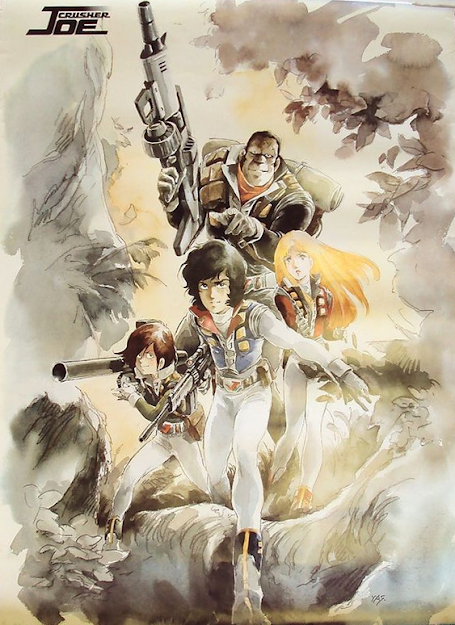 out back in the day that most of you had never heard of… A bit of background, on the weekends back in the 90s I would get into my car & go down to Wallingford,Ct for a weekend of Anime at a local comic shop. I would spend the weekend with friends & one of the things we saw was this. Crusher Joe was made into an animated film in 1983, and a pair of for-video animated episodes in 1989. The film version won the Animage Anime Grand Prix prize in 1983.
out back in the day that most of you had never heard of… A bit of background, on the weekends back in the 90s I would get into my car & go down to Wallingford,Ct for a weekend of Anime at a local comic shop. I would spend the weekend with friends & one of the things we saw was this. Crusher Joe was made into an animated film in 1983, and a pair of for-video animated episodes in 1989. The film version won the Animage Anime Grand Prix prize in 1983.
Gaming (Future War Stories): There are time when we must ask ourselves 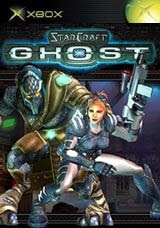 when we witness what could have been: how can this not exist? That is how I and many other gamers felt during the recent leak of a Xbox development kit for the Blizzard cancelled StarCraft: GHOST 3rd person action/stealth game for the 6th generation. For many of us, GHOST was going to be first day buy for our OG Xbox consoles…and then there were delay after delay until GHOST was placed on DNR status in 2006 by Blizzard after nearly six years of development that span two studios.
when we witness what could have been: how can this not exist? That is how I and many other gamers felt during the recent leak of a Xbox development kit for the Blizzard cancelled StarCraft: GHOST 3rd person action/stealth game for the 6th generation. For many of us, GHOST was going to be first day buy for our OG Xbox consoles…and then there were delay after delay until GHOST was placed on DNR status in 2006 by Blizzard after nearly six years of development that span two studios.
Tolkien (Notion Club Papers): John Garth. The Worlds of JRR Tolkien: the places that inspired Middle-Earth. Frances Lincoln, London: UK, 2020. pp 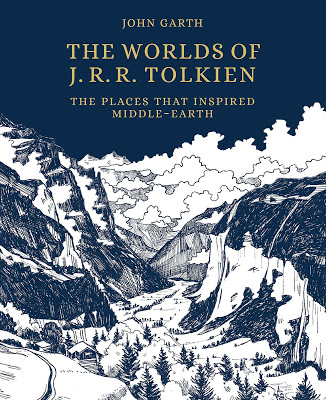 208. John Garth is one of the best and most important writers on JRR Tolkien. This is his first full-length book since the landmark volume Tolkien and the Great War of 2003; so I knew I would enjoy it. From the title, and the fact that it is a large format, really beautifully-produced, hardback volume; I supposed The Worlds of JRR Tolkien might be dominated by the pictures, maybe even be something like a superior ‘coffee table’ book?
208. John Garth is one of the best and most important writers on JRR Tolkien. This is his first full-length book since the landmark volume Tolkien and the Great War of 2003; so I knew I would enjoy it. From the title, and the fact that it is a large format, really beautifully-produced, hardback volume; I supposed The Worlds of JRR Tolkien might be dominated by the pictures, maybe even be something like a superior ‘coffee table’ book?
Fiction (Library Blog): This week marks the bicentenary of Sir Walter Scott’s twelfth novel The Abbot, published in Edinburgh on 2 September  1820 and in London two days later. Alone among the Waverley Novels, it was presented not as a stand-alone narrative but as the sequel to an earlier volume, The Monastery, which had appeared just six months earlier. Set in the early years of the Scottish Reformation, The Monastery had sold well but had disappointed many readers and reviewers. Criticism was directed, in particular, at the pivotal role played by the ghostly White Lady,
1820 and in London two days later. Alone among the Waverley Novels, it was presented not as a stand-alone narrative but as the sequel to an earlier volume, The Monastery, which had appeared just six months earlier. Set in the early years of the Scottish Reformation, The Monastery had sold well but had disappointed many readers and reviewers. Criticism was directed, in particular, at the pivotal role played by the ghostly White Lady,
Cinema (Hollywoodintoto): Reporters have spent days detailing why “Terminator: Dark Fate” became the year’s most embarrassing flop. The movie made just $29 million stateside, and its foreign box office totals are equally weak ($94 million and counting). That’s no way for a franchise reboot to perform. Most observers are writing the saga’s obituary. Those reporters nailed some of the core reasons for its box office woes, from franchise fatigue to recycled story beats. Most missed another crucial factor. The sad decline of Arnold Schwarzenegger, A-list movie star.
Fiction (Adventures Fantastic): So yesterday’s post on Edgar Rice Burroughs and Harold Lamb and the recent post on the canon, coupled with today is the anniversary of the passing of J. R. R. Tolkien and the seventh anniversary of the death of Frederik Pohl, got me to thinking. I referred to Burroughs and Lamb as giants. In the canon post I quoted Newton talking about his achievements being due to his standing on the shoulders of giants. So who exactly are the giants in the field?
Fiction (Tentaculii): There’s a new bibliographic website for prolific British writer Michael Moorcock. The Works Of Michael Moorcock is obviously still a work-in-progress, but the pages for books and shorter fiction appear fairly complete. Moorcock tried his hand with at least one Sherlock Holmes pastiche, but has no overtly Lovecraftian pastiches that I’m aware of. His leftist attacks on many other writers, often described in words such as ‘brusque’ or ‘pungent’, turned out no differently in Lovecraft’s case and with the usual knocks being offered (“astonishingly awful prose” etc).
Fiction (George Kelley): I’ve been a big fan of Hank Davis’s Science Fiction 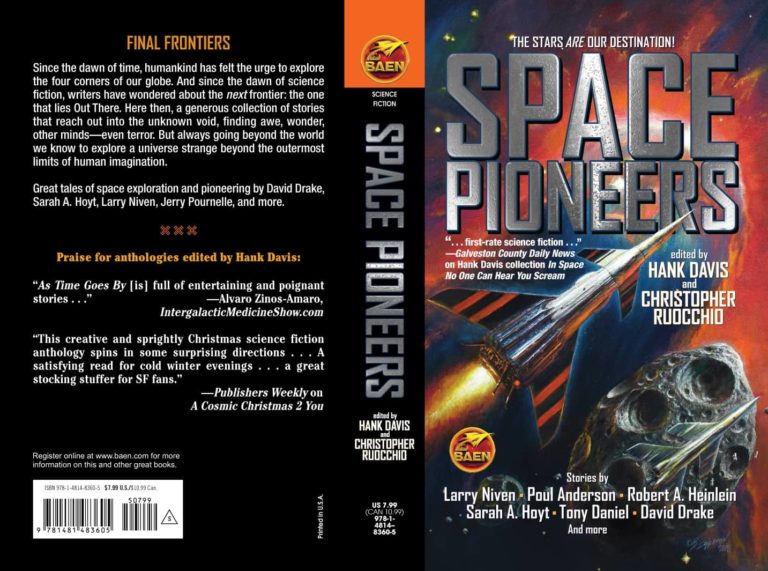 anthologies over the years. Just in time for the Holiday Season, BAEN Books released Space Pioneers, an anthology with just about something for every readers’ taste. In typical Hank Davis fashion, the mix of stories blends Oldies with some newer stories like David Drake’s “Superweapon” (2018). I especially enjoyed Ross Rocklynne’s “Quietus” and Manly Wade Wellman’s “Men Against the Stars.” If you’re in the mood for an entertaining theme anthology, I recommend Space Pioneers. GRADE: A
anthologies over the years. Just in time for the Holiday Season, BAEN Books released Space Pioneers, an anthology with just about something for every readers’ taste. In typical Hank Davis fashion, the mix of stories blends Oldies with some newer stories like David Drake’s “Superweapon” (2018). I especially enjoyed Ross Rocklynne’s “Quietus” and Manly Wade Wellman’s “Men Against the Stars.” If you’re in the mood for an entertaining theme anthology, I recommend Space Pioneers. GRADE: A
Fiction (Paperback Warrior): In 2019, Stark House Press generated a commercial and critical hit with the release of The Best of Manhunt, an 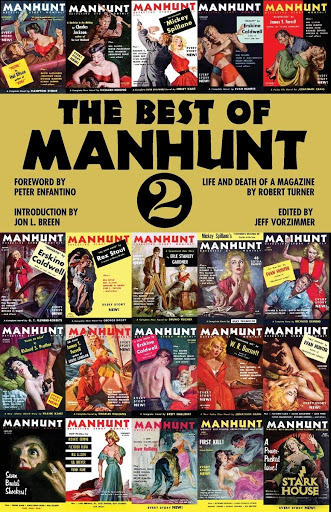 anthology of stories from the legendary 1950s crime fiction digest. Knowing a good thing when they see it, the reprint publisher has compiled a second volume of blood-on-the-knuckles tales from the popular magazine’s heyday for an August 2020 release.
anthology of stories from the legendary 1950s crime fiction digest. Knowing a good thing when they see it, the reprint publisher has compiled a second volume of blood-on-the-knuckles tales from the popular magazine’s heyday for an August 2020 release.
Writing (Rawle Nyanzi): Recently, I came across an article (archive here) about the evolution of the horror genre in film. While the article is from 2000, and I’m not a horror fan myself, one point stuck with me: how scientific materialism, rather than an understanding of good and evil, became dominant in horror filmmaking, starting with George Romero’s Night of the Living Dead. In the materialist worldview, the universe came into being by random chance, and so did the Earth and humanity.
Writing (Kairos): World building is the one element that sets speculative fiction apart from every other category of writing. When designing a secondary world, it’s crucial to establish a foundation of internally consistent principles to help readers suspend their disbelief. Religion in general has been a constant of human existence. Writing a secondary world where there are no and never have been any religions will automatically cause tension between the setting and known history, straining credibility (though it could make for an interesting story hook if handled properly).
Tolkien (Jon Mollison): Listening to the Silmarillion on audiobook, and something occurred to me. The three themes of the Ainur presage the three ages of Middle-Earth. From the Tolkien Gateway: The Ainur’s flawless Music satisfied even Ilúvatar during this early stage. The Second Theme was “like and yet unlike” the First; it gathered new power and beauty. Soon, however, Melkor’s discord rose up against it, and there was a “war of sound more violent than before”. This time, Melkor’s Theme triumphed over that of the others; many of the Ainur stopped singing entirely out of dismay.
Damn. We’ve lost de Havilland and Rigg now. Such fine, classy women. Those are in ever shorter supply.
Cool post on Burroughs’ THE WAR CHIEF!
Props to Black Ops for putting the Bezmenov clip in their new game.
Very cool post on “The Ainulindale” by Mollison.